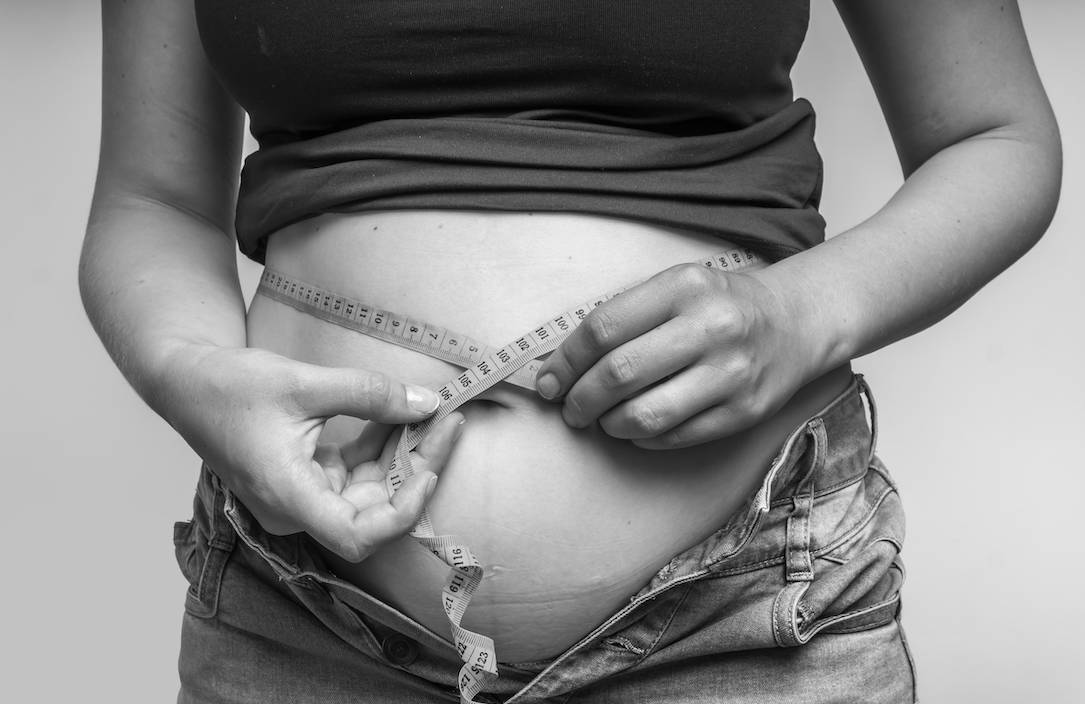
To perform at its best, our gut microbiome requires a balanced and rich diversity that acts in a stable manner. Even though the composition can change from month to month (and indeed, even day by day), the ebbs and flows of our gut composition react much like a body of water: it may move and sway, but together stays whole and as one. Keeping a stable dynamic helps our gut microbiome respond appropriately to daily changes like mealtimes, exercise, immune responses, and the various other systems it interacts with. When the gut microbiome loses this natural balance, it can act out in many ways, changing how it communicates and interacts with our body.
There are dozens of ways an imbalanced gut microbiome can affect us, and it varies from individual to individual. Diet, lifestyle, environment, age, gender – all of these can alter the gut microbiome balance. When compromised, the most immediate effects can be seen through our digestion and even heighten our risk for weight gain.
Gut Bacteria and Obesity
Did you know that obesity is not just a weight status, but a true disease? Health professionals often talk about how significant weight gain can increase your risk for so many other disorders. Your risk of cardiovascular disease, diabetes, stroke, and cancer may go up – but obesity is more than just a predisposition for these other conditions. Obesity, in itself, has clear physiological signs and its own series of symptoms and affects.
From mood disorders to overwhelming levels of inflammation, excessive weight gain can create a series of micro-symptoms that flood the body. Obesity has even been shown to cause chronic pain and impact one’s ability to breathe. An obese individual does not need to wait until they develop an additional condition before obesity becomes a problem. It has the ability to inflict bodily trauma all on its own – and some studies suggest it may have a lot more to do with the gut microbiome than previously thought.
It is well known that weight gain can cause variations in our gut microbiota. In animal studies and in human clinical studies, the gut flora is heavily impacted by weight gain by decreasing its variability and harming its natural balance. Thus, gut dysbiosis has a strong connection to excessive weight gain, compromising our body’s ability to regulate energy. Differences in gut composition can vary significantly from one to another, though scientists have noticed many lose the ability for the gut microbiota to ferment indigestible fibers. When passing through our digestive tract, these fibers should be metabolized by our gut flora to produce beneficial short-chain fatty acids that keep our gut lining healthy. Without them, our gut lining can become compromised and create significant digestive troubles. This is just one of the many ways the relationship between obesity and the gut microbiome can affect our health.
When Bariatric Surgery Seems Best
For obese individuals, improving diet and making more active lifestyle changes can help recuperate the impact of gut dysbiosis, and also help initiate a weight loss journey. Though this strategy is the absolute healthiest way to lose weight, it can take time and patience to see drastic results. Due to its slow and progressive nature, some obese patients must face a more difficult challenge to immediately alter their current health status through bariatric surgery.
Bariatric surgery is a serious procedure, and for most – a last resort. When normal weight loss methods are exhausted or a person is faced with a dire health concern, bariatric surgery offers a faster opportunity to significantly improve symptoms. However, it does not come lightly, and requires an overwhelming and extreme lifestyle change.
There are several types of bariatric surgery: gastric bypass, sleeve gastrectomy, adjustable gastric band, and biliopancreatic diversion with duodenal switch – each one requiring increasing complexity and more drastic surgical procedures. Much like other surgeries, patients undergo a tumultuous recovery, with most maintaining a liquid diet for months afterward. The weight loss benefits, however, are seen almost immediately and greatly improve the risk of related conditions. Many bariatric surgery patients can expect resolving many symptoms of diabetes and lowering their risk of many comorbidities like cardiovascular disease and stroke. Studies have shown that this may in part be from a rapid evolution of the gut flora. Such extreme dietary changes quickly shift the gut microbiome toward a healthier direction, rebalancing and diversifying the microbial ecosystem. The hormones that regulate hunger – leptin and ghrelin – also seem to be impacted, helping patients change their dietary patterns. Improved carbohydrate and fat metabolism are also demonstrated, making bariatric surgery very successful in helping to make positive microbial changes.
But where many immediate benefits emphasize the effectiveness of bariatric surgery in weight loss and the gut microbiome, other studies are showing an alternative side. These benefits often dissipate within a year, with many patients finding their weight loss journey coming to a halt. For although the extreme changes in diet result in shedding extra weight, the lasting impact on the gut microbiome says differently. Many of these patients end up reverting back to a similar gut flora from before the surgery. Although scientists are still trying to understand why this happens and ways to prevent it, it suggests that bariatric surgery may not be the answer to obesity so many patients and physicians believe it is. In truth, it may help relieve some of the pressures on our health that stem from obesity, but there is far more to it. Even after 5 years post-bariatric surgery, these patients never fully obtain as rich and diverse a gut microbiome as never-before obese individuals.
These studies suggest that there remains a lingering effect on the gut microbiome from the impact of obesity, one that scientists are still unsure how to resolve – even after significant weight loss is obtained.
Taking a Stance on Healthy Weight
The knowledge and understanding we can gather from these studies should work to inspire us to focus more on the importance of maintaining a healthy weight. Although we can take steps to reduce our weight and improve our health, there are many persistent impacts of obesity. Whether by disrupting the stability of our gut microbiome, or changing our metabolism, there is no easy solution to optimal health. Just as nutrition works as preventative medicine, keeping our weight status at a healthy level is our best way to keep us healthy long-term. Whether by promoting a stable and balanced gut ecosystem, or reducing the metabolic and inflammatory effects of excess fat tissue, we have the power to take control over our health.
And the greatest tool in our toolbox to fight back against chronic disease?
Our diet – and the ways we can use it to optimize our health from the inside out.



